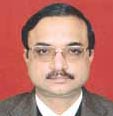Many multinational companies in the electronics industry have leveraged India’s manpower advantage to grow in the domestic market as well as source products and services from India. There is a great demand for highly talented workforce, especially for design and engineering services, with good communication skills in technical and management fields. India’s capabilities in IT and engineering make it an attractive destination for sourcing engineering services such as R&D and design.
Power game
The power sector comprises a wide range of firms from fairly large companies to small and medium-scale businesses. Hence this industry requires professionals with varied skillsets to cater to product design and development, project engineering, product management, marketing and sales. The companies in this sector also look for professionals having a superior understanding of electronics, instrumentation, electrical, mechanical and power engineering.
The power sector offers huge opportunities for engineering professionals with multidisciplinary interests such as magnetics and mechanics. Technically satisfying careers can also be pursued in the fields of technical marketing, design engineering, project management, and integration and servicing. [stextbox id=”info”]
 “Jobs are typically available in the areas of industrial system design, motion control, robotics, efficient energy conversion, and interfaces for solar and wind electricity generation.”
“Jobs are typically available in the areas of industrial system design, motion control, robotics, efficient energy conversion, and interfaces for solar and wind electricity generation.”
— Dr Mukul Chandorkar, professor-electrical engineering department, IIT Bombay
[/stextbox]
“If we broadly want to define job responsibilities, the different rolescould be testing engineer, electronics engineer, electrical engineer, hardware engineer, firmware engineer, etc. Many companies prefer engineering background even for their sales function,” shares Kiran Madan, senior manager-HR, Intex Technologies (India).
There is no denying the fact that entry-level technical graduates prefer the IT industry to core industries like power. However, considering the long-term growth opportunities, the engineering passouts are now increasingly choosing career in the power industry.
As an electronics professional, you may pick a role in the power circuit design section of a solutions providing firm or in the maintenance, instrumentation and control sections of any power plant.
Coming to the basic criteria for entry, diploma holders and engineering graduates may try their luck here. Power industry recruiters also look for postgraduates and doctorates for some fields requiring specialised knowledge, such as R&D.
‘Power’ your pocket
This sector can be very rewarding in terms of salary depending on the nature of the job and the industry experience you have, as there are major players like NTPC, BHEL and Reliance other than government agencies which look for people at various levels from time to time. A fresh engineering graduate may start at Rs 200,000-Rs 350,000 per annum.
[stextbox id=”info”]
“If we broadly want to define job responsibilities, the different roles could be testing engineer, electronics engineer, electrical engineer, hardware engineer, firmware engineer, etc. Many companies prefer engineering background even for their sales function.”
engineer, electronics engineer, electrical engineer, hardware engineer, firmware engineer, etc. Many companies prefer engineering background even for their sales function.”
— Kiran Madan, senior manager-HR, Intex Technologies (India)
[/stextbox]
[stextbox id=”info”]
 “While hiring an engineer, recruiters basically look for three things—knowledge of basic electronics, practical handling of instruments during college, attitude towards problem solving and also passion to grow.”
“While hiring an engineer, recruiters basically look for three things—knowledge of basic electronics, practical handling of instruments during college, attitude towards problem solving and also passion to grow.”
— R.K. Bansal, founder and managing director, Uniline Energy Systems
[/stextbox]
You could be part of a major project as a junior engineer and grow in 10-12 years’ time to head major projects. Your career graph may resemble that of an engineering trainee moving on to become a sub-system designer to a system designer to an R&D manager to a business head or an R&D head. Or it could be that of a trainee engineer moving on to become a developer (problem identification) to a team leader and further to a manager.
“Power electronics is an area in which industrial experience makes a big difference in salary levels. A power electronics engineer with two or three years of industrial experience earns much more than one with one year of experience,” adds Dr Chandorkar.
In a good public-sector company, a management trainee can enter management within five years or so. With five-seven years of experience in this industry, you can easily earn salaries in the range of Rs 500,000 to Rs 1 million per annum.
Power skills
Now let’s talk about the skill sets that fresh graduates should bring to the table to get an edge in the power market. Being a technology-driven field, the power industry requires professionals to keep abreast of the latest technological updates that are taking place, instead of focusing only on their departmental concerns. Not that you are expected to know everything, but keep in mind that you should be a quick learner as a lot of training takes place on the job. Dr Bhattacharya adds, “Companies need hands-on engineers who can understand existing designs and modify them as needs change and as the electronic components improve.”
Dr Chandorkar opines, “A background in digital embedded systems design, in addition to a thorough grounding in electric power and control, is highly desirable, though not always necessary.”
“While hiring an engineer, Delta looks for specialisations such as B.Tech in electricals & electronics or a diploma in electricals & electronics. For R&D and design, candidates should have a fair knowledge of applications like Auto-CAD, Catia, Orcad and other design related applications along with relevant experience in product designing and development,” adds Sharma.
The recruiters while hiring not only look for good percentage academically but also the technical bent of mind and problem-solving skills. Technical people are included in the recruitment process to judge the candidate’s technical prowess.
“Specialisation is always an added advantage but a fresher can also begin a job and pursue further study. This will help him in both ways— experience and additional qualification,” advises Madan.







